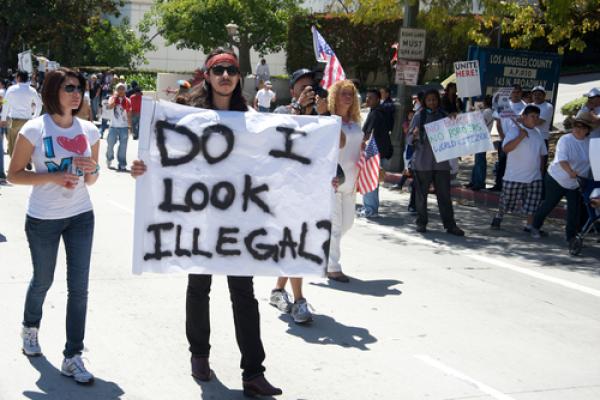Editor's Note: In April, Associated Press representatives said they would no longer recommend the term "illegal immigrant" in the influential AP Style Guide used by many in print media. However, the term is still used by many media outlets and in common parlance. Our hope is that more will follow the AP's lead and rethink its usage.
As the Senate recently passed long awaited immigration overhaul and the bill now heads to the House, the long-standing national discourse on the issue of immigration will likely heat up again. As we participate in these discussions, my hope is that we, especially as Christians tasked with peacemaking and reconciling, will find ways to build bridges instead of erecting walls. As a first step in this bridge building, I pray that once and for all, we will stop using the term “illegal immigrant.”
Here's why:
1. The term “illegal immigrant” is a misleading and dishonest term, which violates the 9th commandment.
The term “illegal immigrant” lends one to believe that an individual is currently doing something illegal, or that their presence in our country is an ongoing, illegal act. In regards to undocumented workers, this is simply not the case. The crime that undocumented workers commit is a violation of “8 U.S.C. § 1325: Entry of Alien at improper time or place,” a federal misdemeanor. Their crime is crossing the border at the improper time and place; however, they are not currently doing anything that is illegal.
Therefore, using this term that has a less-than-honest connotation, is a violation of the commandment to not “bear false witness against our neighbors.”
Read the Full Article

